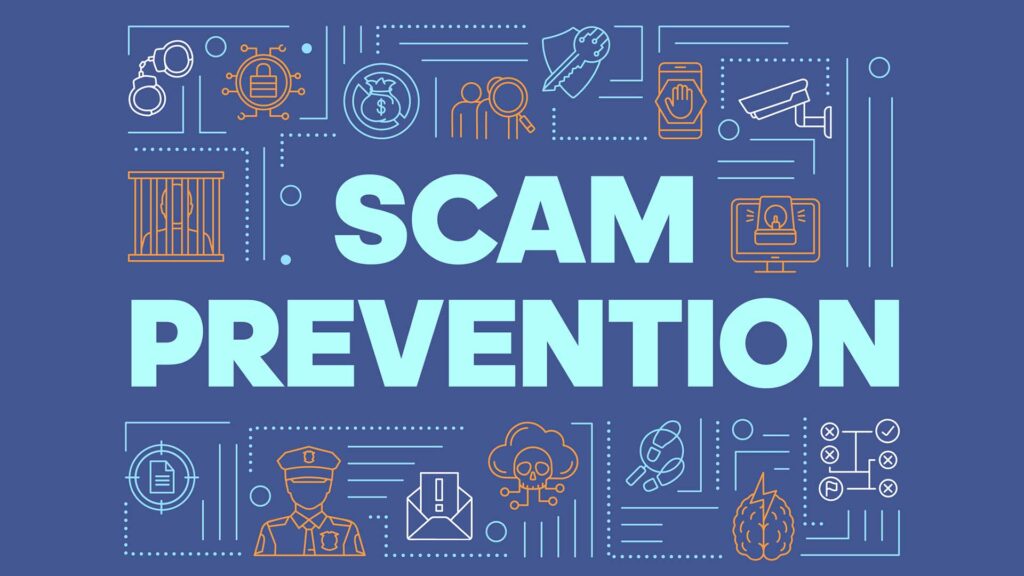Hey there, savvy money manager! We’re living in an era where our wallets have gone digital, making it super convenient to handle our finances. But you know what else is on the rise? Yep, you guessed it – sneaky fraudsters and cyber tricksters. They’re eyeing your credit union and bank accounts, access to online banking and more. No worries, though! We’ve got your back with tips to help you keep your hard-earned cash safe and sound.
1. Be a Password Picasso:
Time to ditch those “123456” passwords, folks. Cook up something unique for each account – a mix of caps, numbers, and symbols. Let’s make those passwords as tough to crack as your grandma’s secret cookie recipe! And hey, while you’re at it, sprinkle in some two-factor authentication for that extra layer of security.
2. Play Account Detective:
Make it a habit to give your credit union statements, online banking moves, and HELOC transactions the eagle eye treatment. If anything looks fishy, call it out! Set up alerts to ping your radar whenever there’s a big change in your accounts – that’s your cue to go all Sherlock Holmes.
3. Keep Things Updated:
You know those software updates that pop up on your screen? Don’t swipe them away like last year’s fashion trends. They’re your secret weapon against sneaky hackers. Stay up-to-date on your devices, and those virtual bad guys will have a harder time knocking on your digital door.
4. Side-Eye Those Emails and phone calls:
Phishing is like the oldest trick in the book. These scammers send emails that look legit but aren’t. If an email asks for your personal info, like passwords or account numbers, don’t fall for it! Beware the crafty tactics of fraudsters who can spoof the phone numbers of your trusted financial institutions. These tricksters might call you, appearing to be your bank, credit union, or a retailer like Amazon, but don’t be fooled! Remember, authentic financial institutions will never ask you for verification codes or sensitive login information over the phone and retailers like Amazon will never transfer you over to your financial institution’s fraud department. If anyone does, it’s a major red flag. Stay savvy and keep your guard up against these shrewd scams to ensure your hard-earned money remains safe and secure. Remember, your financial intuition will never slide into your inbox or call you asking for a verification code to snoop around your account.
5. Safe Networks Only:
Picture this: you, sipping coffee at a cafe, handling your online banking on their free Wi-Fi. Now hit pause – that’s a prime-time spot for hackers to swoop in. Stick to secure networks for your money matters. Public Wi-Fi might be free, but the cost of compromised info is way too high.
6. Hide Your Docs:
Got important papers lying around? Lock them up like treasure! Keep physical copies of your bank docs, loan agreements, and IDs in a safe spot. For digital files, it’s all about the encryption. Password-protect those babies and keep them hidden from prying virtual eyes.
7. School Yourself:
Knowledge is power, folks! Your credit union and bank have your back with resources to school you on the latest fraud moves. Stay in the loop and read up – it’s like giving your brain a superhero cape against cyber baddies.
8. Sneak a Peek at Your Credit:
Peeping into your credit report isn’t just fun – it’s smart. Scan for anything odd. Did someone open a credit card in your name? Nope, not on your watch! Grab your free yearly credit reports and give ’em a good old once-over.
9. Be the Limit Setter:
Ever heard of setting transaction limits? It’s like locking your financial doors. Check if your credit union or bank lets you do this. If a scammer tries to hit you with a huge transaction, they’ll hit a brick wall instead.
10. Report, Report, Report:
Remember this golden rule: if you see something funky, say something! If anything smells off in your accounts, call your financial intuition right away. And remember, they’ll never text you for a verification code to hop into your account – that’s like giving a stranger your house keys.
There you have it, money maestro! With these easy-peasy steps, you’re arming yourself against the tricksters of the digital realm. So keep those passwords strong, your eyes sharp, and your financial instincts on point. Your money deserves nothing less than Fort Knox-level protection!





